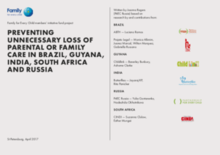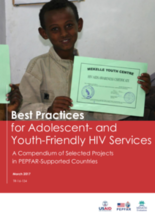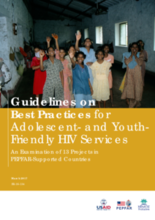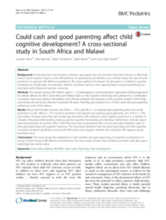childrens_living_arrangement
children_living_without_bio
Displaying 191 - 200 of 324
Despite recent reports from the National Adoption Coalition of South Africa (Nacsa) stating the number of abandoned babies have declined in Gauteng and KwaZulu-Natal, anonymous abandonments are on the rise.
This report finds that there is a paucity of research on the role of caregiving in low- and middle-income countries, where the protective effects of high-quality care in buffering the child's developing stress regulation systems may be crucial. This paper reports findings from a longitudinal study (N = 232) conducted in an impoverished periurban settlement in Cape Town, South Africa.
This report presents the findings from a study that aimed to explore the application in practice of the ‘necessity principle’ from the Guidelines on Alternative Care for Children (UN, 2009) by using three quantitative and three qualitative indicators that provide information about whether children and families have received support to the fullest extent possible before a child ends up outside of parental care arrangements in formal or informal care, or living alone.
This compendium contains the findings from a review of 13 projects providing HIV services to adolescents in PEPFAR-supported countries.
This document examines 13 projects serving HIV services to adolescents in PEPFAR-supported countries and provides a set of guidelines on best practices for adolescent and youth-friendly HIV programs.
An article on how starting child support grants during pregnancy improves the lives of children.
In this article, the authors present findings that describe resilience-enhancing practices in the lives of 15 South African child protection social workers (CPSWs) who were considered resilient.
This study describes the impact of cash grants and parenting quality on 854 children aged 5–15 (South African and Malawi) on educational outcomes including enrolment, regular attendance, correct class for age and school progress (controlling for cognitive performance).
This study explored the impact of cash grants on children’s cognitive development. Additionally, the authors examined whether combined cash and care (operationalised as good parenting) was associated with improved cognitive outcomes.
This study contributes to the emerging body of South African literature on care leaving, as it explores the future selves and resilience factors of young people who are still in residential care and who are about to exit the statutory system.




